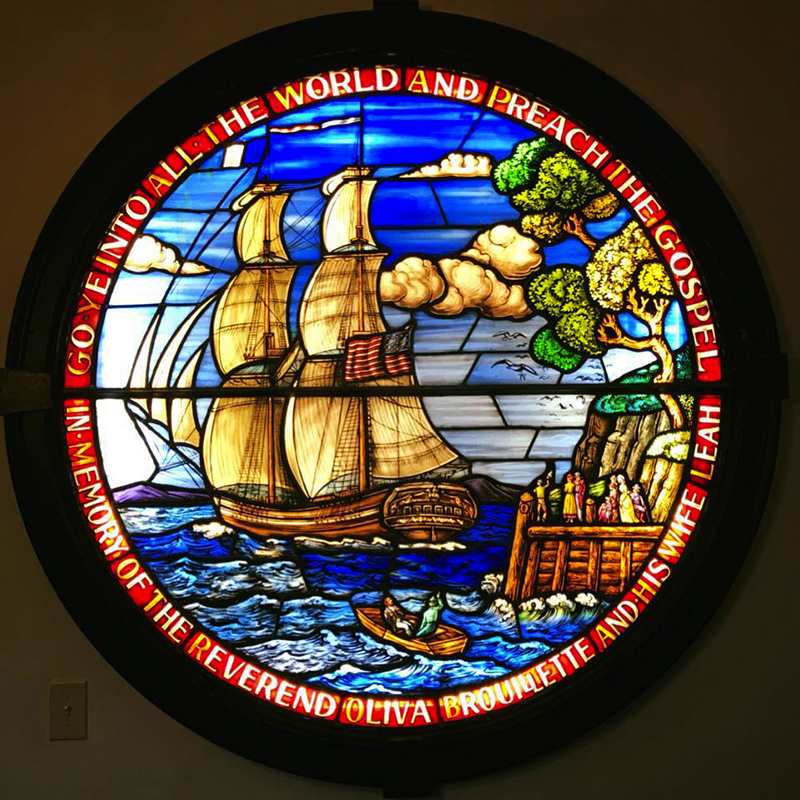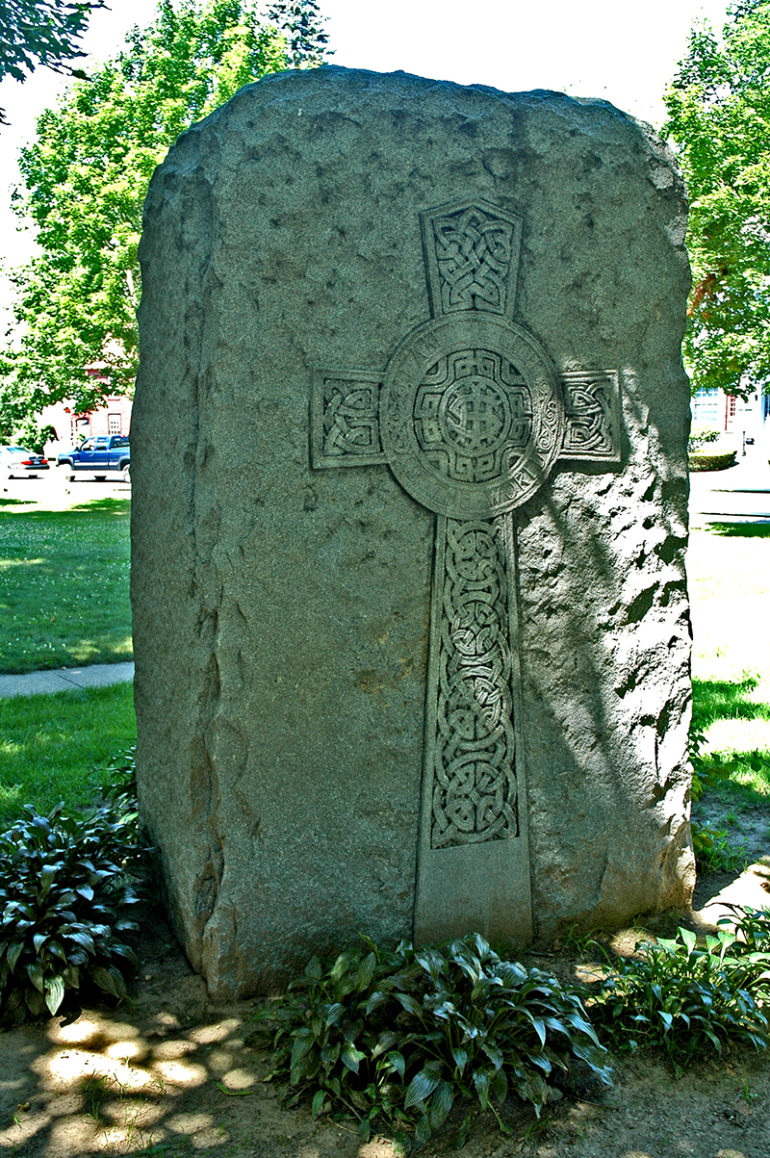The American Board of Commissioners for Foreign Mission (ABCFM), founded in 1810, arose from the religious fervor that America experienced during the Second Great Awakening (Panel 1). Seeking to bring salvation to “heathen” communities at home and abroad, the ABCFM was one of several like-minded organizations to emerge during the late 18th and early 19th centuries, including The Baptist Missionary Society, Connecticut Missionary Society and Massachusetts Missionary Society, all of which predated the ABCFM. None, however, could match its ambitious scope and level of activity. ABCFM missionaries hailed from Presbyterian, Congregationalist and German Reformed traditions.

Departure of the Caravan
The first company of ABCFM missionaries departed from Salem on February 19, 1812, heading for India. They arrived four months later and, over the ensuing years, established stations in Burma, Bombay and Ceylon (Sri Lanka.) The Departure by Alfred Jones, Congregational Library Exhibits. The stained glass window at First Baptist Church in Salem portrays this same image. Photograph by Christopher Cook.
The organization launched its first mission to British India in 1812. Over the following decades, missions were established in Ceylon (Sri Lanka), China, Singapore and Siam (Thailand), Hawai‘i, the Middle East and Africa. In America, ABCFM sponsored mission settlements among a number of Native American tribes, including the Cherokee, Choctaw, Chickasaw and Creek, Pawnee, Nez Perce and Sioux. Missionaries built schools and often created the first dictionaries and grammar books of native languages, as they strived to bring the word of God to tribal members. Members of ABCFM also fought against the Indian Removal Act of 1830, enacted by U.S. President Andrew Jackson, that stripped tribes of their ancestral lands.
In 1819, ABCFM launched the first company of missionaries to Hawai‘i. At Park Street Church in Boston, the organization provided explicit instructions to the first company’s 14 young men and women: “You are to aim at nothing short of covering these islands with fruitful fields, and pleasant dwellings and schools and churches, and of raising up the whole people to an elevated state of Christian civilization.” 1 They also were commanded to refrain from “all interference with local and political interests of the people.” Over the next decades, 11 successive companies of missionaries would arrive in Hawai‘i, bringing their cumulative number to 184 men and women.

In 1817, the ABCFM established the Brainerd mission to the Cherokee in Chattanooga, Tennessee, which ended with the Cherokee removal in 1838. Samuel Worcester, an Andover Seminary graduate, was sent as a missionary to Brainerd. He worked with Elias Boudinot, a former Foreign Mission School student of Cherokee heritage, to establish a Cherokee language newspaper. Worcester served time in jail for his active support of Cherokee causes and lived out his life in Indian Territory. Cherokee Mission at Brainerd, TN, Congregational Library Exhibits.




